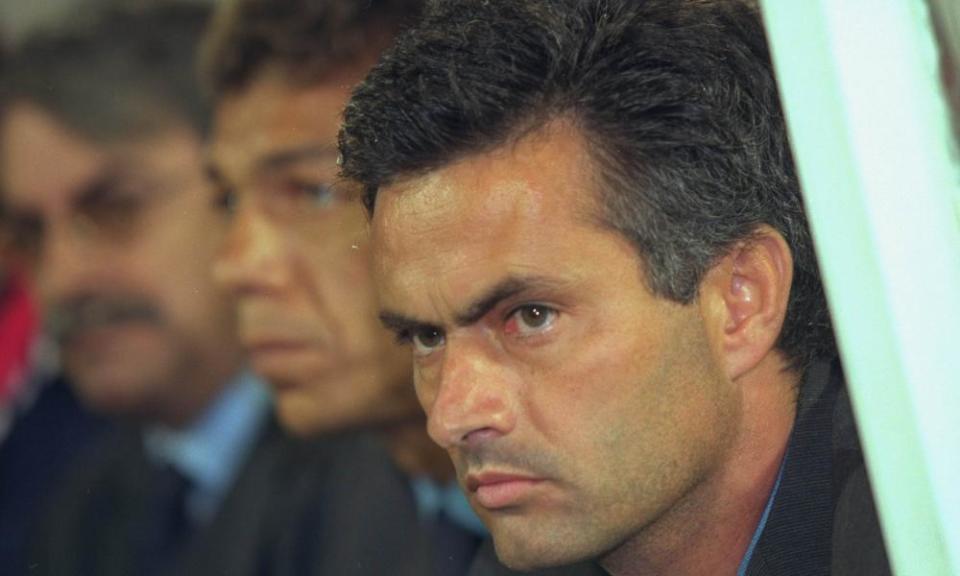Which nationalities have played most Premier League games without scoring? | The Knowledge

“Ragnar Klavan recently became the first Estonian to score in the Premier League,” tweets Nathan Eaton. “Which nationality has made the most appearances without ever scoring?”
“I’ve done some work here and made a list of all the countries that fit the bill,” cheers Nick Fredriksson, offering some sweet, sweet words. “Here goes:
1) Oman, 111 (Ali al-Habsi)
2) Albania, 31 (Lorik Cana)
3) Pakistan, 22 (Zesh Rehman)
4) Zambia, 20 (Emmanuel Mayuka 16, Collins Mbesuma 4)
5) Bolivia, 19 (Marcelo Martins Moreno 12, Jaime Moreno 7)
6) Cyprus, 9 (Nikodimos Papavasilou 7, Alexis Nicolas 2)
7) Equatorial Guinea, 4 (Emilio Nsue)
8) Lithuania, 3 (Tomas Danelevicius 2, Giedrius Arlauskis 1)
9) Cape Verde, 2 (Pelé 1, Cabral 1)
10=) Seychelles, 1 (Kevin Betsy)
10=) Faroe Islands, 1 (Gunnar Nielsen)
10=) Guinea-Bissau, 1 (Mesca)
10=) Kosovo, 1 (Bersant Celina).”
Al-Habsi has scored an own goal, mind. Wes Court was among a host of others to write in. “Other interesting tidbits I learned on this procrastinating experience,” he notes: “A majority of countries (53%) have never scored a Premier League goal. And of the 97* countries that have scored in the Premier League, 15 have only one goalscorer, and five of those 15 have only one goal (Poland have two tied with one goal each) [*includes three British Overseas Territories].”
Unusual football rules
“Watching this vintage MLS penalties clip got me wondering: what are some rules in use or were once used in certain places that differ from what we are used to seeing in the ‘traditional’ game?” wonders Jithvan Ariyaratne.
Graham Clayton reminds us of a maverick idea employed at Hampden Park over 40 years ago. “The 1973-74 Scottish League Cup final between Dundee United and Celtic featured an experimental offside line that went from the edge of the penalty area across to the touchlines.”
Meanwhile, Sean DeLoughry remembers a time when corners actually deserved the roar of approval they get from fans when one is awarded: “Back in the day several cup competitions in Ireland used the corner count to settle drawn games, leading to the occasional bizarre late scramble to try and force or save a corner. The FAI Cup and the third-ranked Shield competition persevered with replays, but three ‘major’ cup finals were decided on corner count. Shamrock Rovers won the Dublin City Cup in both 1956-57 and 1959-60 on corners after 1-1 final draws with Drumcondra. They also won the 1942-43 Dublin-Belfast Intercity Cup by beating Bohemians on corner count after a 2-2 aggregate draw in the final.”
“Then there is the glorious tale of the ‘double golden goal’ rule employed in the 1994 Caribbean Cup (it’s been mentioned hereabouts before).” And Sem Firulas tweets that “here in Brazil we once tried: two referees in a game; penalty shootouts for every match that ended in a draw; and corners taken from the edge of the box in U-18 tournaments. All of them lasted very briefly.”
Double post-match managerial departures
“Is the recent occasion with Garry Monk and Carlos Carvalhal the first time that both managers have been sacked shortly after the same game?” asks Darren Smith.
“I point you to a Portuguese league match, the Lisbon derby between Benfica and Sporting on 3 December 2000,” writes Rui Pereira. “The managers were two of Bobby Robson’s former assistants at FC Porto: José Mourinho (in his first job as head coach) and Augusto Inácio, respectively.
“Both teams were having a bad season. Benfica won 3-0, leading to Inácio’s dismissal, while at the winning side tensions between a newly-arrived club leadership and Mourinho, who had been appointed by the outgoing directors, led to Mourinho’s resignation after only three months in charge. According to press reports at the time, Sporting were on the verge of hiring Mourinho as Inácio’s replacement, but that additional twist didn’t happen. The final outcome was not good for any team: reigning champions Sporting finished third in the league, while Benfica finished at their all-time lowest place of sixth.”

Knowledge archive
“Given the rather precarious world economic climate, have any clubs been forced to take up a sideline business to stay afloat?” wondered Fergal McMahon, in the midst of 2009’s credit crunch.
Life is all well and good in the world of football global branding, especially for the world’s leading clubs. But spare a thought for those a little further down the ladder, such as Croatian third division outfit NK Nedeljanec. In 2004, when officials publicly revealed Nedeljanec’s financial strife, a plan was hatched by dedicated fans to save their team’s skins: the sale of potatoes, six tonnes of which were collected and sold to raise club funds.
“No one here has much money, but we have lots of potatoes to sell,” fans’ chief Ivan Fosnar told the Jutarnji List newspaper. “It is the least we can do seeing as we are so near to promotion to the second division. We’ll do everything we can to help our club. It is not a problem to donate these potatoes if that will be enough to save the club.” Grateful Nedeljanec officials had no, ahem, chip on their shoulder and accepted the donation, which they admitted would help the club survive until the end of the season.
Can you help?
“What was, statistically, the greatest great escape of them all?” asks Nick Jones. “Either in terms of the highest ‘points adrift’ to ‘points remaining’ ratio (perhaps not final-day escapes) or simply the largest ‘points adrift’ which was overcome. Without governing body interference, of course.”
“The beautiful city of Bristol has had two league clubs pretty much consistently since 1920, combining for a total of 212 years of league football, with only three Football League Trophies and one Welsh Cup to show for it,” mails Andy Field. “Does this make it the least successful multi-club city?”
“Hemel Hempstead Town beat St Albans City 2-0 on New Year’s Day,” begins Andrew Levey. “This ended a run of five consecutive 2-2 draws between the two sides in the National League South. Has there been a longer run of identical scores between two teams?”
“What is the biggest score in a top-flight match anywhere where both sides score and all goals are scored by players meeting their old clubs?” muses John McDougall.
Iain Dowie and Fergie have words attributed to them in the Collins and OED, are there any other bizarre entries with football beginnings?
— Football Primers (@footexplain) January 9, 2018
@TheKnowledge_GU Spurs - West Ham tonight. Reid vs. Dier, or the other way around... Is there any other incidents where one players name is another players name backwards? Did Lampard ever face a Drapmal? Or did Shearer meet a Reraehs?
— thisisntipswich (@thisisntipswich) January 4, 2018
Gary Elphick started the season as Worthing manager, yet on Boxing Day he found himself taking them on as a Burgess Hill Town player. I wondered if this is a first in any way.
— Matt Prior (@ConceptCzech) January 9, 2018
Send questions and answers to knowledge@theguardian.com or tweet @TheKnowledge_GU

 Yahoo Sport
Yahoo Sport 





































